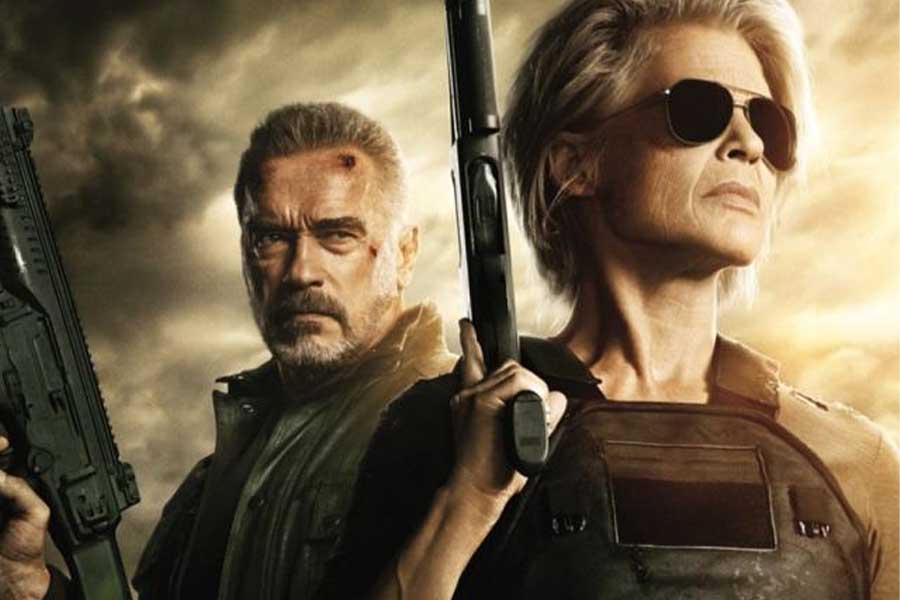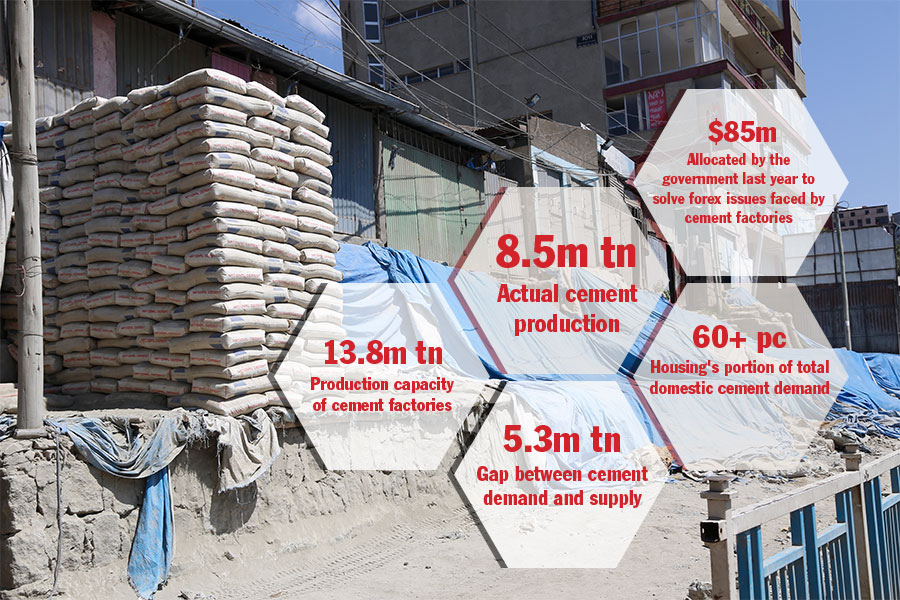
Films Review | Nov 09,2019
Dec 29 , 2018
By
The Horn’s politics is fast becoming one of the most closely watched and discussed topics, giving rise to an international rivalry dubbed the “Scramble for the Horn.” The phrase is fitting given that the nations who are showing interest in the region, building military bases and pouring billions of dollars into investments, are the likes of China, the United States and Middle Eastern powers.
The countries that form the region are Ethiopia, Somalia, Djibouti and Eritrea. The biggest economic power among them is Ethiopia, with an annual gross domestic product of over 80 billion dollars, the approximate net worth of the American business magnate Warren Buffet. As far as wealth is concerned in geopolitical decision making, the entire Horn is made up of economically disenfranchised nations at the mercy of global big players.
This is reminiscent of Africa’s fate over the past centuries. Ethiopia, for all its pride in never being colonised, has never been as sovereign as many of its citizens like to boast. Crucially, the Dergue era, as is the case in many different countries, could be explained as merely another extension of the Cold War. It is hard to imagine that the communist military junta would have lasted 17 years without the support of the now defunct Soviet Union.
In the same token, the post-Dergue era has seen the nation quietly, but surely, lapse into Chinese economic dependency, giving way to large trade imbalances. Most worryingly, the accumulation of Chinese debt accounts for more than half of the 24 billion dollars of Ethiopia’s external indebtedness in 2016. It is not at all comforting that China has been willing to make up for unsettled debt with national assets.
Of course, there is something to be said for different administrations and regimes that attempted to shield the nation from the machinations of outside influence. Despite its economic dependency, Ethiopia seems to front a neutral posture internationally, except when it comes to Eritrea and Somalia.
This has had its benefits, and it has not been without a great deal of effort. This nation preferred to hold its own peace during periods of geopolitical tensions and conflicts, including the Israel-Palestine conflict and the United States-China rivalry. Of course, the latter hardly makes the country unique.
Ethiopia played along on issues that garnered international consensus. The nation fully supports the United States’ war on terror, participates in UN peacekeeping missions and is an early and enthusiastic supporter of green energy.
For a developing nation, Ethiopia has done a surprisingly impressive job of maintaining a level of policy sovereignty for a long time. Since the 1990s, it may have been easier to do since there has been nothing that resembles the Cold War. Nations that did not venture too far afield of United States policies have been, relatively speaking, left to their own devices.
Ethiopia does not support terrorism nor has any intention of developing nuclear weapons.
Why should the United States care?
It care now, though. Within this generation, China will surpass the United State as the largest economy in the world. And the United States will not take it lying down. China does not espouse the same capitalist - at least in rhetoric, if not in practice - and democratic values as the US. Between the two, strategic and economic conflicts, if not a military one, will be wedged.
Unfortunately, it would be the likes of Ethiopia that suffer most as it could be used as a proxy. This scenario ought to be well understood as the government enters into trade and grant agreements between the two powerhouses. A delicate balance will need to be maintained, and this needs to be done by removing all perceptions that Ethiopia has it in for one of them.
The nation should also advocate economic and political integration within Africa - the only way developing countries can ever fend off Western or Eastern superpower influences.
And this should not just be a foreign policy dictated by an administration but one that parliament has a say in. The stakes are higher than at any time since the Cold War - the wealthiest and most powerful nation in the world has encountered a protagonist worthy of a match. What follows will not be pretty, and there needs to be consensus on how Ethiopia can counter it.
PUBLISHED ON
Dec 29,2018 [ VOL
19 , NO
974]

Films Review | Nov 09,2019

Commentaries | May 07,2022

My Opinion | Feb 13,2021

Fortune News | Jan 16,2021

Radar | Sep 22,2024

Radar | Oct 07,2023

Editorial | Oct 12,2024

View From Arada | Sep 17,2022

Commentaries | Jun 13,2020

My Opinion | Apr 13,2024

Photo Gallery | 179575 Views | May 06,2019

Photo Gallery | 169772 Views | Apr 26,2019

Photo Gallery | 160703 Views | Oct 06,2021

My Opinion | 137190 Views | Aug 14,2021
Commentaries | Oct 25,2025

Dec 22 , 2024 . By TIZITA SHEWAFERAW
Charged with transforming colossal state-owned enterprises into modern and competitiv...

Aug 18 , 2024 . By AKSAH ITALO
Although predictable Yonas Zerihun's job in the ride-hailing service is not immune to...

Jul 28 , 2024 . By TIZITA SHEWAFERAW
Unhabitual, perhaps too many, Samuel Gebreyohannes, 38, used to occasionally enjoy a couple of beers at breakfast. However, he recently swit...

Jul 13 , 2024 . By AKSAH ITALO
Investors who rely on tractors, trucks, and field vehicles for commuting, transporting commodities, and f...

Oct 25 , 2025
The regulatory machinery is on overdrive. In only two years, no fewer than 35 new pro...

Oct 18 , 2025
The political establishment, notably the ruling party and its top brass, has become p...

Oct 11 , 2025
Ladislas Farago, a roving Associated Press (AP) correspondent, arrived in Ethiopia in...

Oct 4 , 2025
Eyob Tekalegn (PhD) had been in the Governor's chair for only weeks when, on Septembe...

Oct 25 , 2025 . By YITBAREK GETACHEW
Officials of the Addis Abeba's Education Bureau have embarked on an ambitious experim...

Oct 26 , 2025 . By YITBAREK GETACHEW
The federal government is making a landmark shift in its investment incentive regime...

Oct 29 , 2025 . By NAHOM AYELE
The National Bank of Ethiopia (NBE) is preparing to issue a directive that will funda...

Oct 26 , 2025 . By SURAFEL MULUGETA
A community of booksellers shadowing the Ethiopian National Theatre has been jolted b...